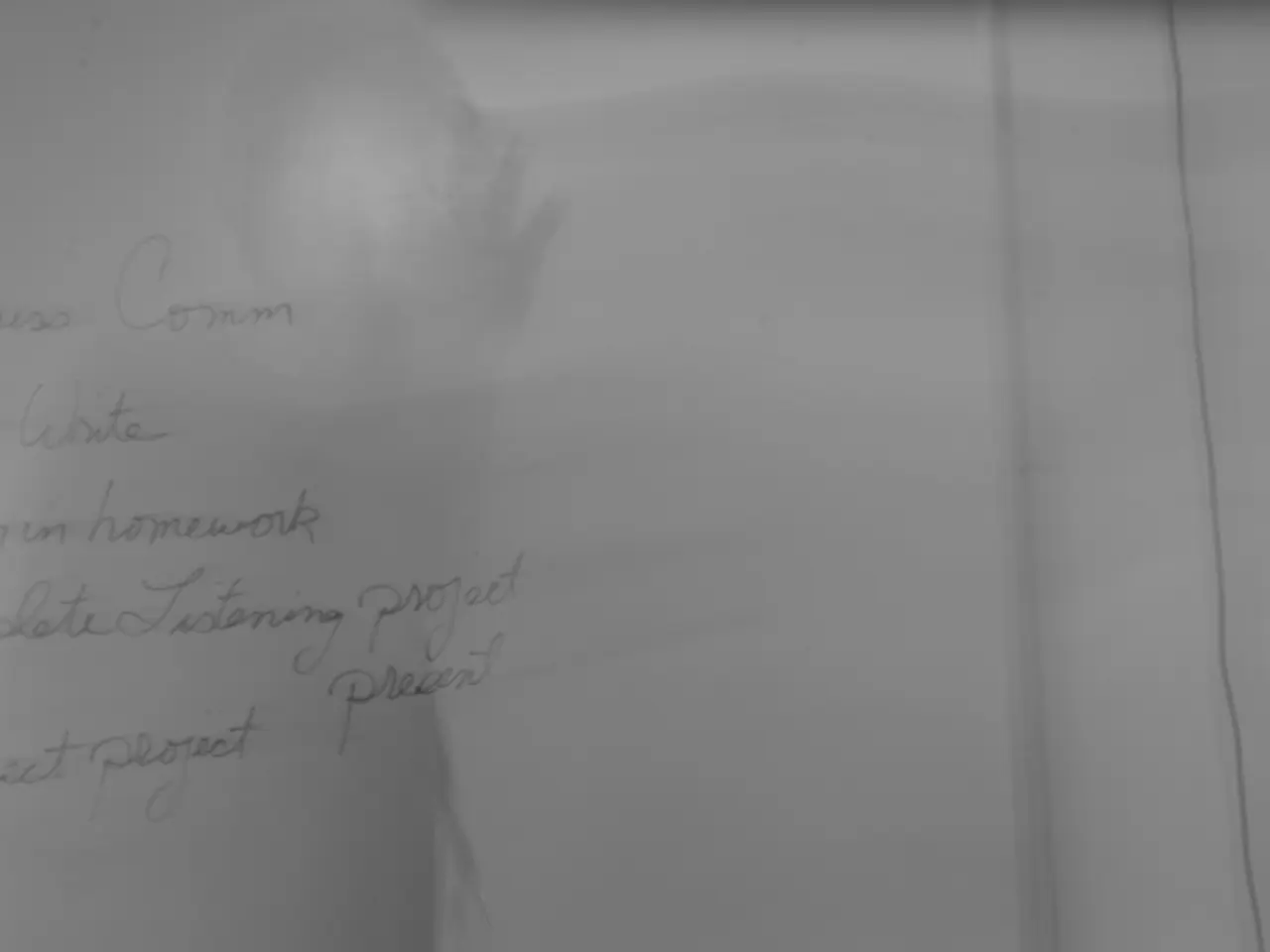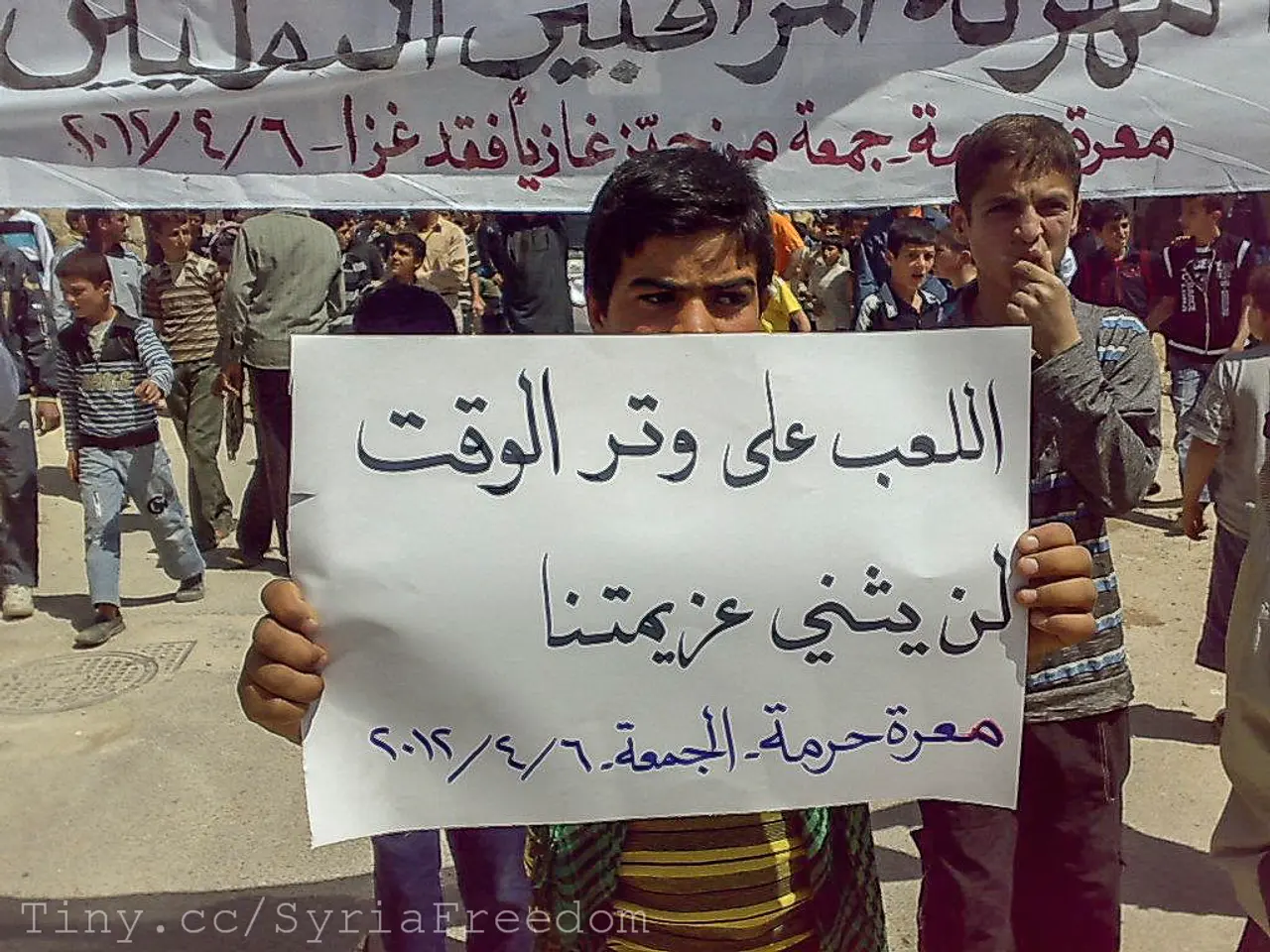EU's Frozen Sanctions Scheme Targeting Israel Remains Unimplemented
In a significant development, the European Union (EU) has proposed partial sanctions against Israel in response to the ongoing humanitarian crisis in the Gaza Strip. The top diplomat of the EU, Kaja Kallas, announced a breakthrough in talks with Israel's counterpart, promising to improve the situation in Gaza.
However, the proposal has hit a hurdle, with some states, including Germany, asking for more time to assess the plan. Without Berlin's backing, the plan is unlikely to advance, reflecting the deep divisions within the EU on this issue.
Germany's foreign minister warned his Israeli counterpart that he risked isolation due to insufficient action on the humanitarian crisis in Gaza. Meanwhile, Sweden, the Netherlands, and Spain are openly calling for the EU to freeze its trade deal with Israel.
Israel has committed to facilitating a substantial increase in trucks entering Gaza and reopening some aid routes. However, some European governments say Israeli measures fall far short in addressing the humanitarian crisis.
The EU's executive wrote in its proposal that Israel is violating human rights and humanitarian law by its actions in the Gaza Strip. The proposal aims to penalize Israel by suspending its association agreement's research and development pillar, which supports startups.
The EU's ties with Israel have been fiercely debated across the bloc. Countries like Spain and Ireland have been calling for an "urgent review" into Israeli compliance with the agreement that governs its trade and relations with the EU since February 2024.
In May of this year, most of the bloc's 27 members backed Spain and Ireland's year-and-a-half old call to review Israel's compliance with the EU association agreement. However, as of early August 2025, EU member states have not reached the qualified majority needed to implement these sanctions.
The EU has been united in its condemnation of Hamas and in its call for the release of Israeli hostages since the militant group's attacks on October 7, 2023. However, the EU's response to the humanitarian crisis in Gaza has been more divisive.
Individual EU states have taken decisions to pile pressure on Israel's government, despite the EU's executive having the power to restrict trade. Slovenia and the Netherlands have banned two far-right Israeli ministers from entering their territory, accusing them of promoting "ethnic cleansing." Several EU countries, including Spain and Belgium, have restricted arms exports to Israel.
Oxfam's Bushra Khalidi stated there is growing pressure within some pockets of the EU Commission to shift course toward taking action on Israel, but the fact that the EU cannot even agree on the smallest step is a disgrace. Hungary is seen as Israel's staunchest EU ally and has been blocking any measures requiring bloc-wide backing, including sanctions on a handful of violent Israeli settlers.
Despite the ongoing divisions, the EU's proposal marks a historic first threat of sanctions linking humanitarian concerns in Gaza to research cooperation. However, the initiative faces major hurdles, with member states divided on the issue. The current status is that the EU has proposed but not yet enacted sanctions that would restrict Israeli startups’ access to EU research funds as a response to Israel’s actions in Gaza. Likewise, no official trade penalties have been implemented, reflecting political divisions among EU member states and the complexity of reaching a qualified majority to impose such measures.
[1] https://www.reuters.com/world/middle-east/eu-proposes-sanctions-israel-over-gaza-crisis-2025-08-01/ [2] https://www.bbc.com/news/world-middle-east-58132764 [3] https://www.aljazeera.com/news/2025/8/2/eu-proposes-to-suspend-israel-s-participation-in-research-program-over-gaza [4] https://www.haaretz.com/world-news/europe/2025-08-01/eu-proposes-to-suspend-israel-s-participation-in-research-program-over-gaza-crisis/ [5] https://www.theguardian.com/world/2025/aug/01/eu-proposes-to-suspend-israel-s-participation-in-research-program-over-gaza-crisis
- The EU's proposal to suspend Israel's participation in a research program is a significant policy-and-legislation move, aimed at addressing the humanitarian crisis in the Gaza Strip, but its enactment faces major hurdles due to political divisions among EU member states.
- The media has been actively covering the EU's response to the ongoing humanitarian crisis in Gaza, reporting on the proposals for partial sanctions against Israel and the role of individual European governments in this matter, such as Germany, Sweden, the Netherlands, and Spain.
- The complications surrounding the EU's proposed sanctions against Israel, particularly regarding research cooperation, have raised concerns about the European Union's commitment to human rights and its ability to effectively influence war-and-conflicts situations like the one in Gaza.
- The ongoing crisis in Gaza has become a significant general-news topic, with the EU's foreign policy, politics, and relations with Israel being closely scrutinized by the media, as well as hearings and debates in European parliaments about the EU's role in addressing human rights issues in the Middle East.







